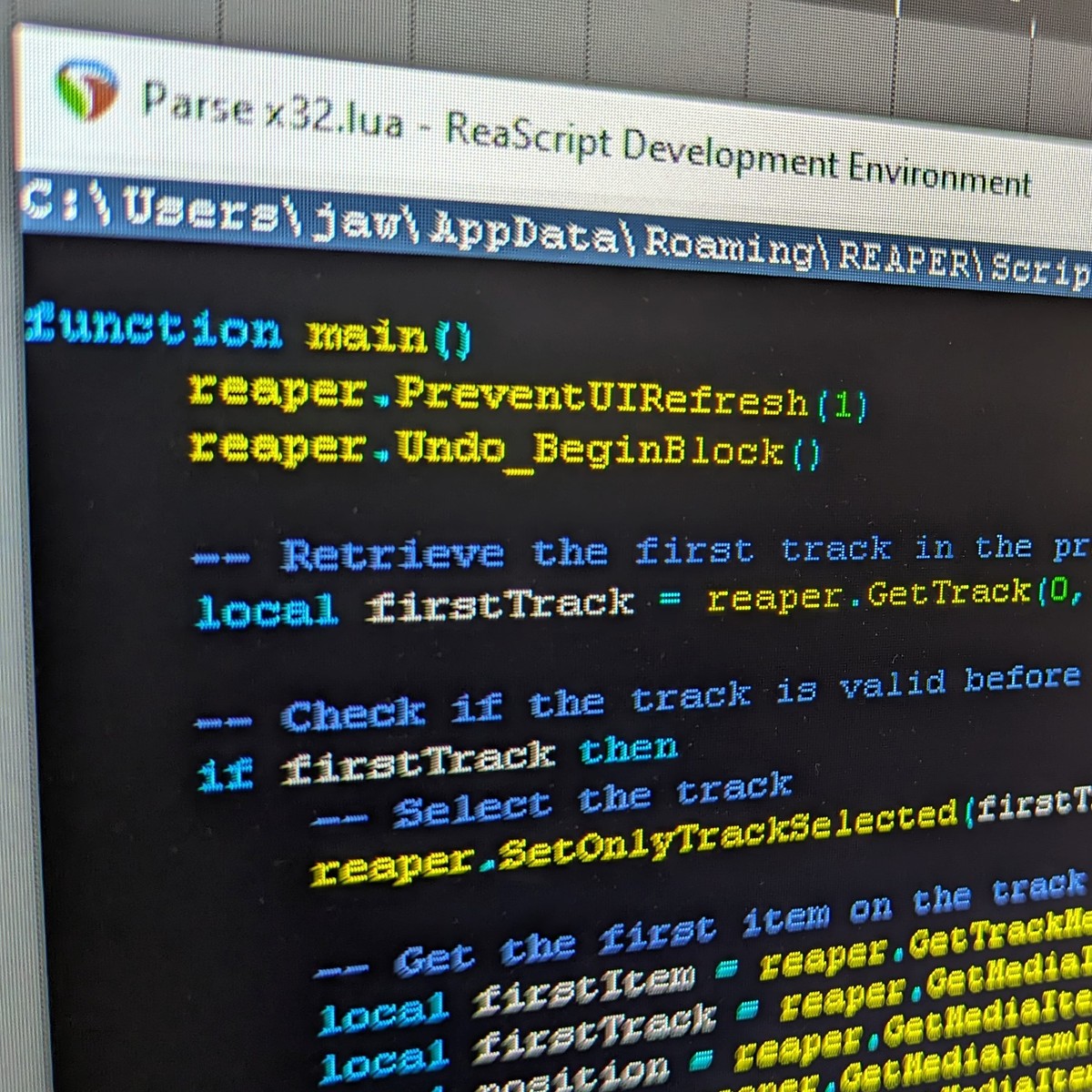I'll come clean with you - in the very early 2000's a mate of mine gave me a dodgy copy of Cool Edit Pro, said "hey those recordings you are working on, try this on them". And thus started my foray into the world of DAWs (Digital Audio Workstations). By the time I realised I loved Cool Edit Pro and went to buy a license, you couldn't get it anymore, it had been bought out by Adobe. I then spent years using Audacity but I never really liked it, and kept falling back to my dodgy copy of Cool Edit Pro. The shame.
The early DAWs were all "destructive", because computers weren't powerful enough to do real time processing. But once you had your own editing process, destructive isn't really a problem, you would have revisions of the wavefiles and you could step back if you needed to. Obviously real time processing would be much better, but just to pop a bit of EQ on a guitar track isn't going to do your head in.
A few months back I grabbed a copy of a recording from the sound tech at my local church where I regularly play in the band. It was a raw 32 channel single file - straight from mics and instruments, no processing. Yeah...I needed to step 20 years into the future to mix that.
Several of my favourite YouTube artists use Ableton as their DAW, so I grabbed the demo and set about learning it. It was so foreign to me I couldn't do it. I looked up Audacity again, which does support real-time processing, and I very quickly got my 32 channel recording loaded up and started mixing it. It was pretty good! Still felt like the same old Audacity so I felt a little bit uncoordinated with it, but I pushed on.
As a side note, mixing a recording of a live mix is a universe into itself. I only know what my ears like, but after reading several articles and watching several videos about mixing, there are some basic techniques, the very first most important one being that mixing is the end of the line - production is the most important part. Let's just say that the band - which changes from week to week as there are many musicians that rotate through - is pretty good, so I'm not wasting my time mixing. But wow, 7 mics on the drumkit, were every drum mic bleeds into the other drum mics, and the drums bleed into all the vocalists mics, and the other instruments...it's a challenge!
While surfing about mixing I came across someone using Reaper, another DAW that I had used years ago but found it unintuitive to use. Because of my frustration with Ableton, and my lackluster desire for Audacity, I gave it another try. I was quickly able to stand up a recording and did some mixing just with the basic real-time processing, and wow, the mix came out sounding so much nicer than Audacity! I think the built in Reaper effects are better than the freeware effects I had downloaded for Audacity. Or perhaps I had already started getting a better ear for mixing.
So I persisted with Reaper, and it was starting to feel more natural. This is good, because I knew that there was some serious scripting power underneath the hood of Reaper, and I knew that a 32 channel mix from a live studio deck could use a lot of automation to simplify the basic tasks you will get every time you explode out the 32 channels for example delete the channels not used, name the rest, group the stereo signals back together (all 32 tracks are mono) and then apply a standard set of effects across them...yeah lots of automation.
The language of choice for Reaper seems to be Lua, which I'd never heard of but is indeed a programming language. I could have used Python, or EEL2, but Lua seemed to be what they were pushing. After working out how to use the script library manager, I downloaded a few scripts to use as an example. The Lua syntax wasn't a problem - I do a fair bit of scripting in my day job - what was a problem was getting my head around all the APIs that Reaper can deal with.
Skipping forward, after about 10 hours of fumbling around, I had built up a nice script that automated all the basic tasks I wanted. It has been enough to make me commit to Reaper, even though there are still a few things that I'm uncoordinated with and seem unintuitive.
Not too pricey either, around (AUD2023)$90 one-off cost (I really dislike subscription model software).
